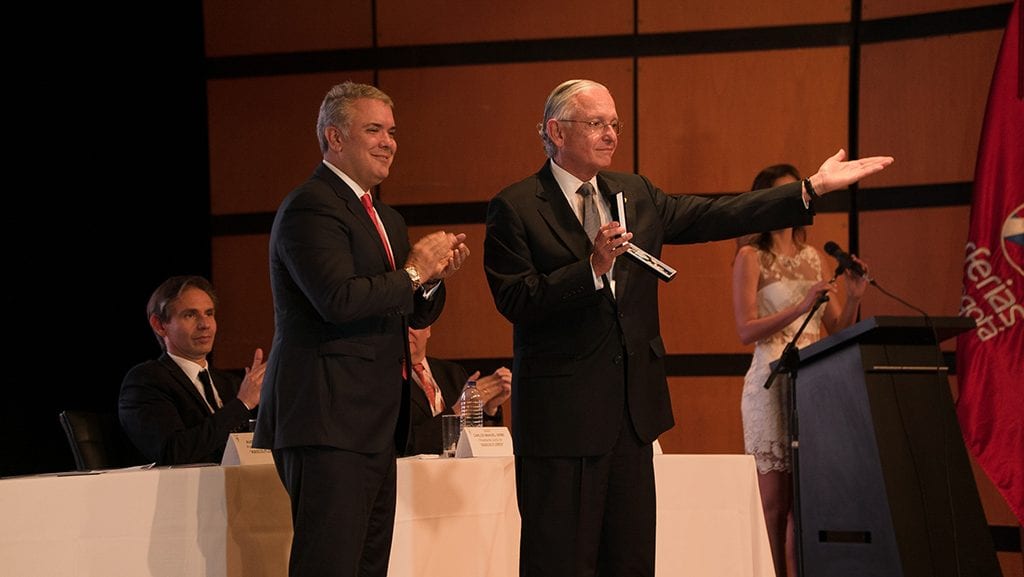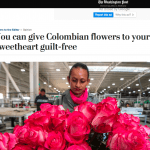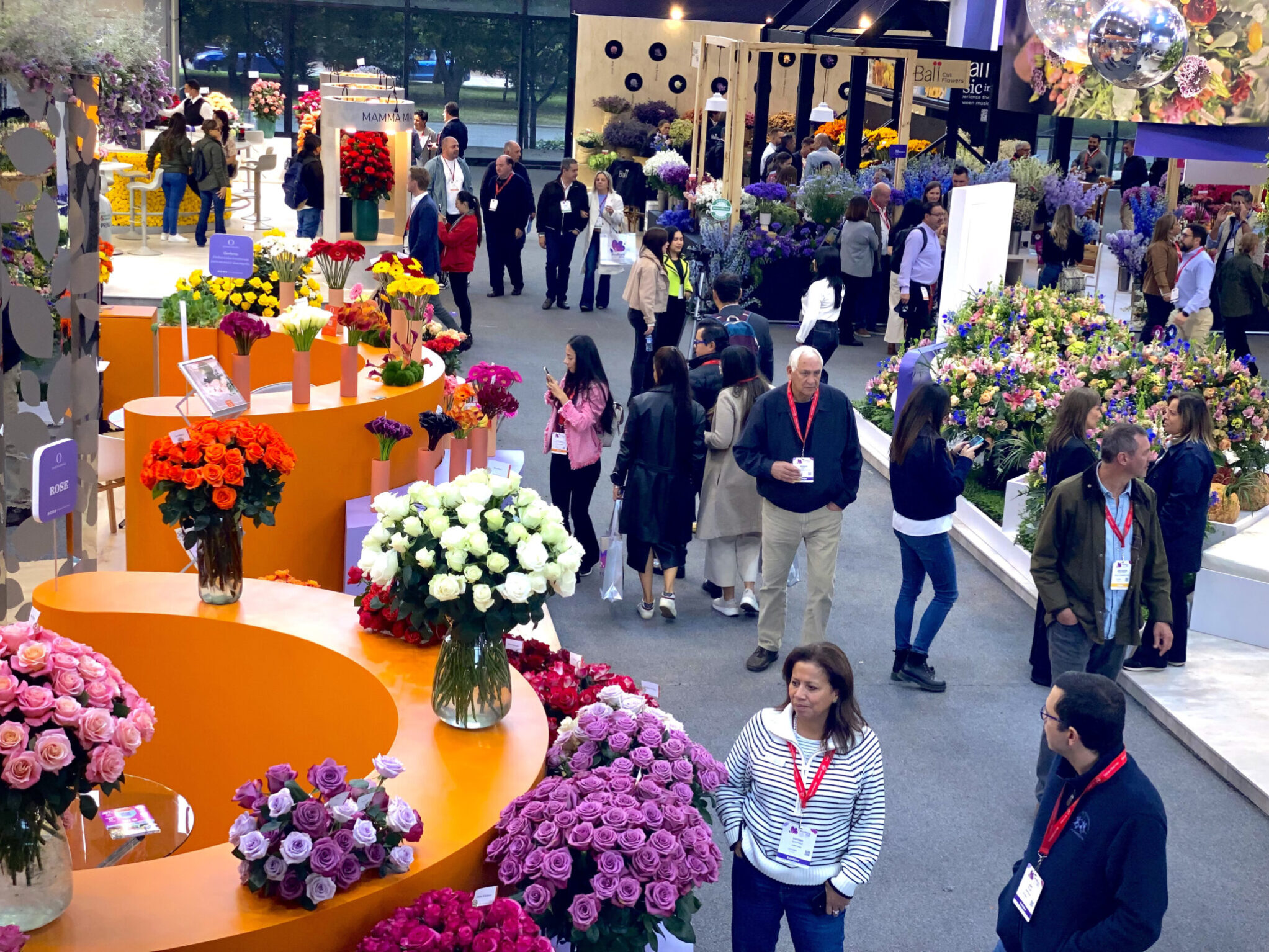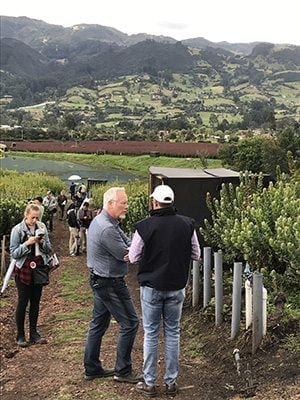
Colombia’s President Iván Duque Márquez and Asocolflores President Augusto Solano, together at Proflora.
A healthy rate of growth in the Colombian floriculture industry over recent years helped to foster an upbeat, lively mood at the international trade fair Proflora, held last week (October 2-4, 2019) in Bogotá, Colombia.
Organized by Asocolflores, the Association of Colombian flower exporters, and held every two years, Proflora has long welcomed exhibitors and visitors from all over the world. This year it included a VIP speaker: Colombia’s President Iván Duque Márquez, who delivered the keynote address during the trade fair’s inauguration ceremony.
In 2018, Colombian flower exports increased 4.2 percent (in value) over 2017, thanks in part to a favorable exchange rate and to strong demand from U.S. consumers. President Duque’s participation in the event underscored his belief that that flowers play an important role, not just in Colombia’s economy, but also in its national identity.
“I have no doubt that the more progress is made in this sector, the more economic equality can be achieved in the places where it operates,” said Duque. He presented a plaque to Lucie de Velez, the founder of a social program called Peace in the Family, created 20 years ago with the goal of combatting and preventing domestic violence. The program, which gives training in skills to resolve conflict, originated with support from flower growers but has spread to other economic sectors. “It has changed the way more than 50,000 Colombians live,” said Duque: “peace in Colombia, starting from our homes.”
In his speech, Duque also congratulated Asocolflores on its 45-year history of promoting floriculture as an industry that has served a social as well as an economic agenda in Colombia and commended flower growers and exporters for lifting many Colombian citizens out of poverty and in particular empowering women, many of them heads of household. An estimated 65 percent of the employees at Colombian flower farms are women, which makes commercial floriculture the largest employer of women in rural areas.
The Colombian president went on to promise support for the industry in the form of tax breaks and the “elimination of red tape.” He proposed that the government should make a strategic plan, in collaboration with Asocolflores, to improve production and reach new markets by 2030. “Please make a note about that,” he said, jokingly directing his comment to the Minister of Agriculture and Rural Development, Andrés Valencia Pinzón, who was also present at the ceremony.
Duque suggested opening Colombian flower farms to tourism as part of a worldwide branding campaign. He specifically pointed to cut foliage as a market where logistics and other tools could be provided to improve competitiveness for Colombian producers.
Indeed, foliage crops were among the diverse range of products promoted at the show. Colombia’s reputation for quality and value was built on roses, carnations, chrysanthemums, and alstroemeria, and these greenhouse staples still account for the majority of Colombian flower exports. More recently, hydrangea has joined the list of the top five, and other field-grown crops, including proteas, are on the rise, reflecting the promotional slogan introduced at Proflora two years ago, “Diversity that inspires.”
It was the 15th edition of Proflora, which is held once every two years. A variety of accents and languages could be overheard on the trade floor, from Spanish to Dutch, Korean, and of course English, among others. Nonetheless, Proflora remains a showcase in particular for flowers from Colombia, the world’s second-largest exporter of cut flowers and foliage (after the Netherlands). Colombia is a primary supplier to the U.S. market: approximately two out of every three cut flowers sold in the U.S. were grown in Colombia.
The cooperation between floral-industry organizations in Colombia and the U.S. was emphasized with a stand at the trade fair jointly representing six U.S. associations — the Society of American Florists, the Association of Floral Importers of Florida, the American Floral Endowment, CalFlowers, the Produce Marketing Association and the Wholesale Florist &Florist Supplier Association — under the headline, “U.S. floral trade associations collaborate to grow and strengthen floral markets.”
Bruce Wright is a contributing writer for Floral Management magazine.






